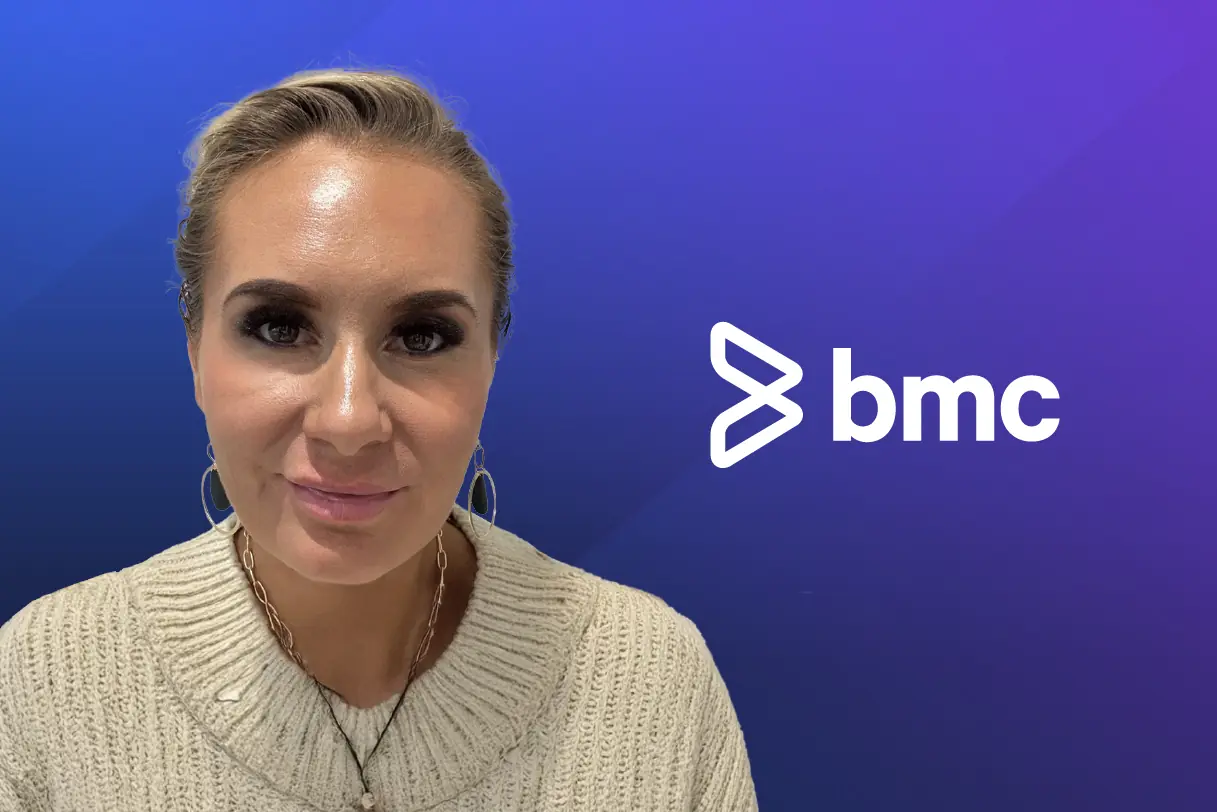From humble beginnings as a mail-order company in rural Sweden, IKEA has firmly held its place as the world’s largest furniture retailer since 2008, bringing affordable style and comfort to homes in 59 countries. With over 80 years of history, the iconic brand and household name is known for the strong values that define it. Those same values act as a compass for IKEA and its people as they embark on the biggest digital transformation in the organization’s history.
In a recent conversation at our annual #AvatureUpfront EU conference, Steve Page, Global VP of Product Management at IKEA, highlighted key shifts in recruitment strategies, technological adoptions and cultural changes at the global retail giant. Chatting with Dimitri Boylan, Founder and CEO of Avature, the animated discussion delved into Page’s journey from headhunting to spearheading digital transformation within IKEA and everything he has learned along the way.
The Impact of Combined Experience
Page’s career evolution, from his days as a recruiter to his pivotal role focusing on product management and technology at IKEA, underscores the critical link between understanding HR intricacies and integrating digital strategies to drive efficiency. His emphasis on leveraging technology to reduce administrative workload and enhance recruiter effectiveness struck a chord in an era where engagement and personalized experiences are key.
I’m very keen on efficiencies. So as I went through my career, I wanted to find ways of reducing the amount of administrative workload that people were suffering – especially recruiters, because you’re more effective if you’re talking to people… I was really interested in implementing technology to improve that. And this role at IKEA is a combination of the understanding of HR and then the implementation of digital strategies in order to bring that to life and react to the market to make sure that we’re effective.”
Steve Page
Global VP of Product Management, IKEA
His time spent on both the business and technology side provides him with a unique vision and understanding of exactly how technology can facilitate those tasks for recruiting and talent management. This breadth of experience is also a critical asset in his current position at IKEA, where he is jointly responsible for all people technology for the workforce globally.
Beyond Technology: A Cultural Transformation Journey
By far, the biggest challenge for Page at present is his role within IKEA’s ambitious digital transformation agenda at a global scale, the hottest topic of his conversation with Boylan in London. Here, Page emphasized the significant cultural shift that is underway:
It’s not just a technology rollout. It’s actually a change in ways of working and a shift in global mentality. It’s a cultural change that we’re going through in every country that we roll out to. It’s not just the technology that’s changing, it’s the processes and the impact of these processes.”
Steve Page
Global VP of Product Management, IKEA
Page shared a great example that demonstrates the kind of shift that they are trying to drive internally, with the aim of granting more autonomy to colleagues and freeing management from the burden of more administrative tasks.
You may have a contract to fulfill of 30 hours a week, but you can’t work on a Tuesday or maybe you can’t do anything on the weekends because of childcare. So, we’re now going through a process of implementing new technology so they can have an impact on their own schedules. They can swap shifts, they can make decisions, they can speak to their colleagues and make internal moves rather than having to burden management with all these decisions.”
Steve Page
Global VP of Product Management, IKEA
While technology is fueling agile new ways of working, Page highlighted that one of the most important challenges he and his team are facing is striking the right balance between technology and a human approach. People’s input, Page has found, is key to navigating a successful digital transformation with a deep cultural shift at the heart, something that aligns closely with one of the company’s most powerful values: togetherness.
If you just rely on technology, then suddenly you’re not speaking to people. If you’re not speaking to people, you’re not really giving them a sense of your values or the tradition that we have in a company like IKEA. So we’re trying to balance it at the moment.”
Steve Page
Global VP of Product Management, IKEA
Revolutionizing Recruitment
Advertisers think they have six to eight seconds to get someone’s attention. To then hold it is becoming a completely new game. Alongside the efforts that are being made to enhance employee experience, Page emphasized the evolving recruitment landscape and the need for speed and engagement in attracting digital-savvy candidates. He underlined the criticality of swiftly engaging potential hires and leveraging technologies that resonate and cut through the noise in today’s attention economy.
The nature of the target audience is changing. So one of the things which we’re really becoming cognizant of is that we’re not really going out to the market to identify candidates anymore. We’re going to market to identify digital users. People now have so much more understanding of how to use digital platforms so we can reach them in different ways.”
Steve Page
Global VP of Product Management, IKEA
Selling IKEA as a modern, attractive organization and conveying the value of coming to work there is a top priority, but it can be challenging in such a dynamic market. “We’re trying to keep up,” shared Page. To add to the complexity, IKEA is committed to delivering a highly localized experience, not only in-store for customers but also for potential hires as well as its employees. As such, recruiting and talent management strategies must be tweaked and tailored to reflect local culture and practices.
Everything in IKEA, because it’s store-by-store, is still very localized. Even if you do something from a country, continent or global level, we’re always thinking of what is happening on the ground in the store. So we have to recruit with that localized mentality but just do it on a bigger scale. It’s a lot of work. But this is one of the values that IKEA has, is that we respond to a local market.”
Steve Page
Global VP of Product Management, IKEA
Page frequently travels to different IKEA locations and he shared that a passion for the people, the setup and the work itself is what colleagues define as their key motivator for staying in the IKEA family for so long.
We’re very proud of the organization we’ve created but we need to continually work to maintain that and to get the right people in.”
Steve Page
Global VP of Product Management, IKEA
IKEA’s approach is clearly working. In the last 12 months, the retailer received 1.6 million applications and they hire about 93,000 people every year. Many of these come through employee referrals because they really love the work environment that the company has created.
The Exponential Potential of Consolidating Technology
Historically at IKEA, technology was chosen in the location in which it would be used, so many recruitment and language tools were independently bought by the countries or stores themselves. With such a wide portfolio of technology, Page explained that his team is currently tackling the challenge of merging diverse technology portfolios to streamline operations. Beyond making things easier to manage, Page highlighted the need to go through this process of consolidation from a security and data privacy perspective. But Page’s vision for data utilization also underscored IKEA’s commitment to harnessing insights for better decision-making, engagement and predictive HR practices.
We’re on a drive to create data hubs that specifically draw data from technologies around the world. We can then start pulling the information out to create insights. We are very serious about protecting the data that we have about our employees, but want to make sure that we use the data positively within the organization to power great recruiting decisions, understand trends and identify issues or problems. Then we can start making predictions.”
Steve Page
Global VP of Product Management, IKEA
And these predictions are so important, Page explained, because they will help leadership directly tackle employee engagement and retention. Even though IKEA has a great tradition of development, which Page exemplified by sharing inspiring anecdotes of professional growth within the organization, he also acknowledged the highly competitive talent landscape in the retail space.
Our CFO and our current CEO developed from other roles within IKEA. And there are multiple stories of individuals who started their role handing out blue bags at the doors and are now running teams of hundreds of people across the globe with IKEA because the opportunities are there. So we need to use data in a way that we can spot the opportunities to grow and develop what we have because it would be such a waste to lose someone to a shoe shop because we haven’t spotted something that they need.”
Steve Page
Global VP of Product Management, IKEA
Another important advantage of creating simplicity and synchronization throughout the business is the possibility of capitalizing on best practices from specific regions or markets that could benefit coworkers from other areas. As examples of this, Page mentioned benefit portals and the onboarding process that they’re developing with Avature. While always respecting their commitment to localization, unifying experiences helps bring the IKEA family together.
Focusing on the Future
At such a crucial moment in IKEA’s transformation journey, Boylan asked Page what his biggest challenge would be over the next couple of years:
Identifying key technology partners that we’re going to build this new technology foundation with. We need to launch technologies that are going to appeal to a new digital generation.”
Steve Page
Global VP of Product Management, IKEA
Unpicking the complexity created over the last 80 years will help IKEA to become more efficient and cost-effective in today’s new paradigm. Then, rebuilding on a foundational platform of technology will enable the organization to make more efficient and speedy decisions. While change is fundamental to keep up with the times and ensure IKEA maintains a competitive advantage in the retail space, so too is staying true to the brand and respecting the values that have cemented it as a stalwart company. And Page echoed the importance of finding the right balance between old and new throughout the conversation.



